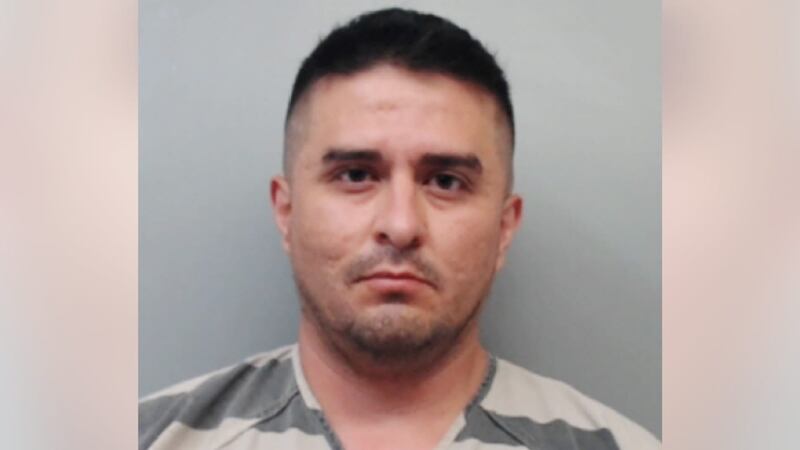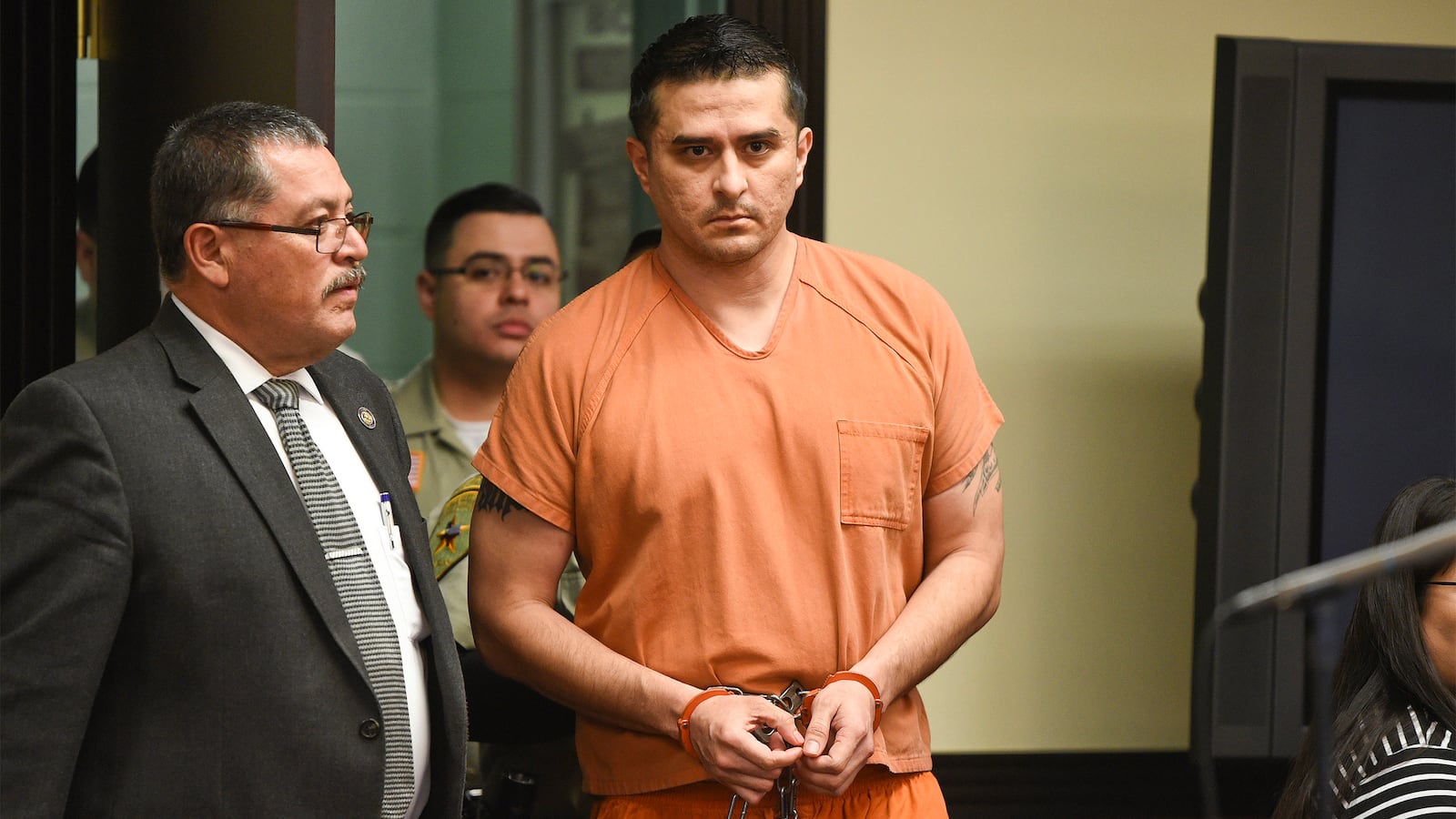A South Texas jury on Wednesday found former border patrol supervisor Juan David Ortiz guilty of capital murder after he was accused of executing four women and dumping their bodies in the desert during in the fall of 2018.
Ortiz is now poised to spend the rest of his life behind bars for the slayings, in which he’s said to have picked up sex workers, shot them in the back of the head and dropped their bodies around Laredo, Texas, near the U.S.-Mexico border.
As the verdict was announced, defense attorney Joel Perez asked Judge Oscar Hale to poll the jury. Twelve times, the jurors said, “Guilty.”
Tears flowed as a number of family members made victim impact statements. Some swore at Ortiz, some wished him a life in hell, and others spoke fondly of their lost loved ones.
“She will always be the 6-year-old girl,” Joey Cantu, Guiselda Cantu’s brother, said as he broke down in tears.
“She was all that I had, bro. You took the last living member of my family, bro.”

Ortiz, dressed in a suit, stood listening, his eyes down.
“I can’t believe you took her life with no remorse,” said the sister-in-law of Melissa Ramirez. “I hate you for what you did and I can never forgive you,” she added, her voice raising. “I can never forgive you, nor do I think God will. You deserve to suffer in prison and go to hell.
“I still mourn for my sister-in-law. My heart is torn apart. Monsters like you don’t even deserve to breathe. You deserve to die and suffer for what you did and when that day happens, I will finally be in peace.”
Ortiz, a Navy veteran, was pinned as the suspected serial killer after a potential fifth victim barely escaped his grasp, she testified during the two-week trial.
Erika Peña said a group of sex workers that frequent San Bernardo Avenue, a notorious red-light district in Laredo, were terrified as their friends began disappearing one-by-one over 12 days in Sept. 2018.
Despite her worries, Peña said she didn’t hesitate to hop in Ortiz’s white pickup truck on the night of Sept. 14. She had known Ortiz for five months and knew he had a wife and kids, and worked in law enforcement, so she said she trusted him to take her to his vacant home.
The encounter started with innocent small talk, Peña testified, but quickly went awry after Peña mentioned the murder of Melissa Ramirez—a friend and fellow sex worker killed earlier that week.
Peña said Ortiz became defensive instead of the “nice, smart, funny” and “normal” guy he usually was. He also claimed to her that he was the “next to last” person to have sex with Ramirez, whichPeña said put her off.
“David was not himself anymore,” she testified. “I was scared…It made me think that he was the one who might have been murdering.”
With Ortiz’s attitude deteriorating, Peña testified she wanted to get to a public space, so she asked Ortiz to take her to get food.
Ortiz drove her to a nearby gas station and parked in the back, Peña testified. Then, without warning, he grabbed her blouse with one hand and pointed a gun at her with the other, she said.
Peña testified that she doesn’t know exactly how she got away, but she remembered unlocking the door and escaping as her blouse was ripped off. She said she ran topless until coming across a Texas state trooper who was pumping gas nearby.
“Someway, somehow, I took off running without a shirt,” she said. “Everything happened so fast.”
Peña’s account was local police's first major break in their investigation. A manhunt for Ortiz promptly ensued, with his arrest coming hours later at a motel parking lot—an ordeal that was captured by body cameras and played to jurors.
What followed proved pivotal throughout Ortiz’s trial. Police in Laredo interrogated Ortiz for nine hours in a recorded interview that revealed a damning confession, in which Ortiz revealed a potential motive and led police to a fourth victim who’s body hadn’t been found.
“I wanted to clean up the streets,” Ortiz told the police. “These people… are dirt, and I was going to get rid of them. Law enforcement doesn’t do anything about them? I will. I’m sick of them.”
Prosecutors argued that the confession, paired with Peña’s testimony, made it clear Ortiz was guilty.
However, Ortiz’s defense attorney, Joel Perez, argued his 38-year-old client had just regurgitated information he’d read in newspapers to end the interrogation in which his client was “coerced.”
Perez also claimed that Ortiz was “broken” and “suicidal” when he made the confession, mentioning that the war veteran suffers from post-traumatic stress disorder. This, Perez argued, meant Ortiz was not in a proper state of mind to speak with police.
To counter Peña’s testimony, Perez claimed the 31-year-old had erroneously identified Ortiz because she was under duress.
Family members of the four slain victims—Ramirez, Claudine Anne Luera, Guiselda Alicia Cantu and Janelle Orti—attended each day of Ortiz's trial, KSAT12 reported.
On Wednesday, the same day jury deliberations began, those family members wore shirts that had pictures of each victim, with “they are loved” emblazoned across the front.





